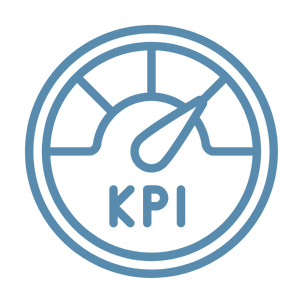September 19, 2023
.png)

Written by:
David Boyes
In the world of automotive repair, technician performance assessment stands as a pivotal practice that significantly impacts the success and reputation of a shop. It goes beyond merely tracking numbers; it's about ensuring customer satisfaction, operational efficiency, and the overall health of the business. At the heart of this evaluation lie Key Performance Indicators (KPIs), which act as guiding stars, providing a roadmap for workshops to measure, manage, and improve technician performance. So, what are the KPIs for automotive technicians?
practice that significantly impacts the success and reputation of a shop. It goes beyond merely tracking numbers; it's about ensuring customer satisfaction, operational efficiency, and the overall health of the business. At the heart of this evaluation lie Key Performance Indicators (KPIs), which act as guiding stars, providing a roadmap for workshops to measure, manage, and improve technician performance. So, what are the KPIs for automotive technicians?
Efficiency in automotive repair revolves around accomplishing tasks with minimal wasted time, effort, and resources while maintaining the highest possible quality of work. It's about optimizing processes, workflow, and decision-making to maximize output.
Measuring efficiency involves tracking key metrics such as average repair time, turnaround time, and resource utilization rates. These metrics provide insights into how efficiently a shop is operating. However, achieving and maintaining high levels of efficiency requires more than just metrics – it demands ongoing training and skill development.
Comprehensive training equips technicians with the latest knowledge and skills, keeping them up-to-date with evolving technologies and repair techniques. This knowledge empowers them to streamline repair processes, make quicker and more accurate diagnoses, and ultimately reduce repair times. Through training, technicians can work smarter, not harder, contributing significantly to improved efficiency, a vital KPI for any automotive repair shop.
Productivity in the context of automotive technician roles means accomplishing more tasks without compromising quality. It's the secret sauce that leads to higher profitability for a shop while ensuring customers receive timely service.
Metrics for tracking productivity in a shop encompass a range of vital indicators, including jobs completed per day, labor hours billed, project completion rate, and task completion rate. These metrics collectively offer valuable insights into the overall productivity of the operation. It's important to note that while these quantitative measures are essential, achieving and sustaining high productivity levels also hinges on fostering a symbiotic relationship with ongoing training and skill development.
Continuous training equips technicians with the knowledge and skills needed to increase productivity. Daily training, for example, helps technicians keep important information top of mind so they don't have to stop working to research an issue. This enables them to maintain a steady, uninterrupted workflow, handle a broader range of repair tasks, and adapt to evolving industry demands. By integrating training into their daily routines, technicians strike a balance between productivity and skill development, ultimately contributing to improved KPIs.
Read More: Causes of Low Automotive Technician Productivity
In our industry, precision is paramount. Accurate diagnoses and precise repairs not only save time and resources but also play a crucial role in building and maintaining customer trust and satisfaction. Precision enhances the quality of work and reduces costly errors and rework.
Measuring accuracy involves examining metrics such as error rates, rework percentages, and customer complaint resolution times. These metrics serve as indicators of how accurately technicians are performing their tasks. To consistently achieve high levels of accuracy, technicians must undergo regular training to ensure they're continuously expanding their skill sets to accurately contend with new problems that may arise during a repair.
Specialized training programs focus on helping technicians to hone their diagnostic and repair skills in order to reduce errors and ensure that they consistently deliver accurate solutions. Whether it's identifying complex engine problems or mastering intricate electronic systems, training empowers technicians to improve their precision, directly impacting KPIs related to accuracy.
In the automotive industry, customer satisfaction is not just a desirable outcome; it's a pivotal  factor that can make or break a shop's reputation and success. Satisfied customers are more likely to return for future services, refer others, and leave positive reviews – all of which directly impact the bottom line.
factor that can make or break a shop's reputation and success. Satisfied customers are more likely to return for future services, refer others, and leave positive reviews – all of which directly impact the bottom line.
Measuring customer satisfaction involves surveys, online reviews, and repeat business. These indicators reflect the technician's ability to meet and exceed customer expectations. To enhance customer satisfaction and, consequently, KPIs related to it, training plays a crucial role.
Training goes beyond technical skills; it encompasses soft skills like communication, professionalism, and empathy. A well-trained technician can not only diagnose and repair vehicles effectively but also provide excellent customer service. They can explain complex issues in understandable terms, set realistic expectations, and ensure customers leave the workshop with a positive experience. Training shapes technician skills in ways that enhance customer satisfaction and, in turn, positively influence KPIs.
Read More: 8 Ways Auto Repair Shops Can Increase Customer Satisfaction
High-quality work in automotive repair means more than just effective repairs; it encompasses adherence to industry standards, safety regulations, and ensuring that the vehicle is returned to the customer in a safe and reliable condition.
Metrics for evaluating the quality of work include inspection results, warranty claims, and customer feedback on repair quality. These metrics align closely with KPIs focused on the quality of work. To consistently meet and exceed these standards, ongoing training is essential.
Training ensures that technicians are well-versed in the latest industry standards and repair techniques. It empowers them to maintain consistently high work standards, perform thorough inspections, and deliver repairs that stand up to scrutiny. As a result, training has a transformative impact on maintaining the quality of work, ultimately reflected in KPIs related to it.
Assessing automotive technician performance through KPIs is not a static process but a dynamic journey towards excellence. Key Performance Indicators provide the framework for measurement and improvement, while training acts as the catalyst that enables technicians to meet and exceed these performance goals consistently.
Ongoing training and skill development are not one-time events but continuous processes that sustain KPI-driven excellence. By creating a culture of learning and improvement through training, shops can ensure that their technicians are well-equipped to navigate the ever-evolving automotive repair landscape. In this way, shops can achieve not only short-term success but also long-term sustainability and customer trust, making training an integral part of the automotive industry's quest for excellence.
Are you ready to start setting your team up for excellence? Contact our team today to begin the conversation.
Tags: Efficiency, Assessments
Effective, positive employee feedback is one of the best tools automotive shop owners and managers have to boost team engagement, performance, and skill development. If you want your shop to meet and...
Instructor-led training has been a staple in the automotive world for decades. It’s structured, and it promises a training experience away from the noise of the shop. But here’s the real question:...
First-Time Fix Rate (FTFR) is one of the clearest indicators of your shop’s overall health. It reflects how often a vehicle is diagnosed and repaired correctly the first time—without requiring a...
2700 Corporate Drive
Suite 200
Birmingham, AL 35242
.png?width=225&height=51&name=TodaysClass_Logo_Color%20Iterations_TC_Light%20Grey%20(1).png)